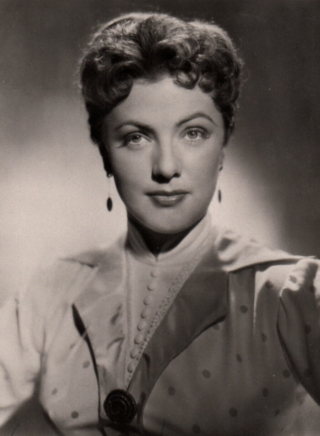Marianne Leopoldine Schönauer (geb. Schiffers, geschiedene Manker)

Personalia
Born:
Died:
Profession:
Curriculum Vitae
Marianne Leopoldine Schifferes was born in Vienna as the legitimate daughter of the Jewish musician Karl Schifferes and the Catholic Marianne, née Pieringer. After elementary school, she attended five classes at a Viennese grammar school before transferring to the Fachhochschule für Musik und darstellende Kunst [today: Max Reinhardt Seminar] in 1935, from which she graduated in 1937. During her studies, she worked for Max Reinhardt and his production of Faust at the Salzburg Festival. After graduating, she was hired as an actress in Moravian Ostrava.
On March 12, 1938, she witnessed the demise of free and independent Austria with the invasion of the German Wehrmacht. With the occupation of Austria, German legislation was adopted and with it the 'Nuremberg Race Laws', according to which Marianne Schifferes was classified as a 'Mischling I.
In April 1938, she had to end her employment in Moravian Ostrava and return home to Vienna, where she became unemployed due to her 'descent'. The Schifferes family were evicted from their apartment and had to find new accommodation. In September and October 1938, she was officially banned from working as an actress by the Reich Ministry of Propaganda. This means that she can no longer take up an engagement at the Volkstheater in Vienna that has already been confirmed. She also had to give up her further acting course at the renowned Kestranek acting school in Vienna's 7th district. On September 28, 1938, she was conscripted as a worker for the Tiltsch engineering company and received a very low wage.
In 1939, her father, Karl Schifferes, who was considered a 'full Jew', fled to France, where he was interned after the invasion of the German Wehrmacht and sent to the Auschwitz concentration camp and murdered.
On November 30, 1944, Marianne Schifferes' service obligation ends due to the war and she is once again unemployed. In Vienna, she witnesses the liberation of Austria and the re-establishment of the Republic. After the end of her work ban, she worked as an actress again and adopted the stage name 'Schönauer'. In July 1945, she married the stage designer, director and later theater director Gustav Manker and became the mother of two daughters. However, the marriage broke up in 1956.
Immediately after the war, she began her career at the Volkstheater in 1945, from where she moved to the Theater in der Josefstadt in 1948 via the Raimundtheater (1949), the Landestheater Salzburg (1950) and the Stadttheater in Vienna (1951), where she was part of the ensemble (with interruptions) until 1987. From 1946 onwards, she also worked in film (she made around 40 films in total), often with prominent partners such as Hans Moser, O. W. Fischer, Ewald Balser, Hans Holt and Johannes Heesters.
After her retirement from the stage (1987), Marianne Schönauer devoted herself mainly to television (including participation in series and teaching (teaching rhetoric and acting at an adult education center), but also gave readings.
Marianne Schönauer died in Vienna at the age of 77 and was laid to rest at the cemetery in Vienna-Hernals.
Citations
Wiener Stadt- und Landesarchiv (WStLA)
Wikipedia unter de.wikipedia.org/wiki/Marianne_Schönauer
Wien.Geschichte.Wiki unter www.geschichtewiki.wien.gv.at/Marianne_Schönauer
Matricula Online
